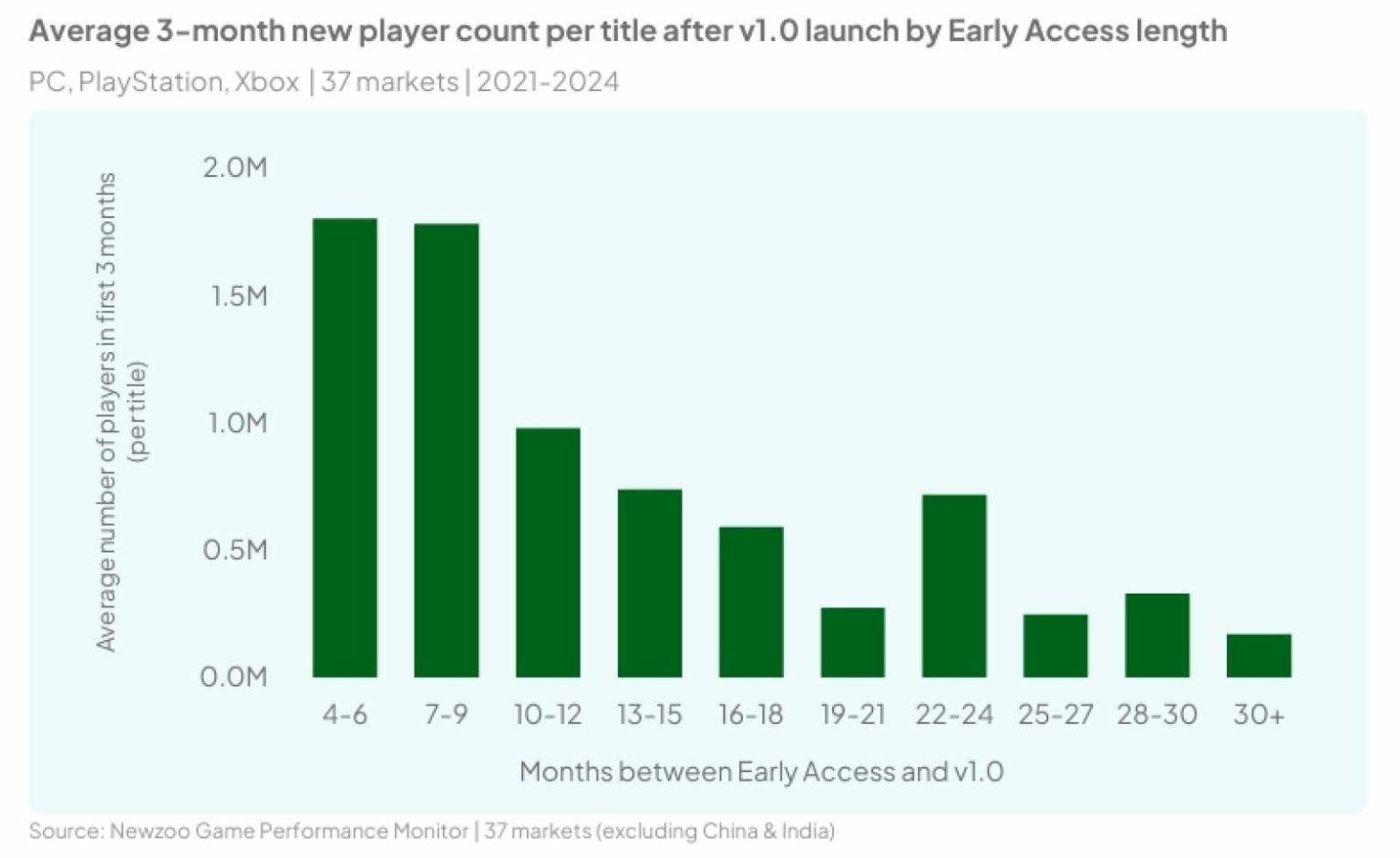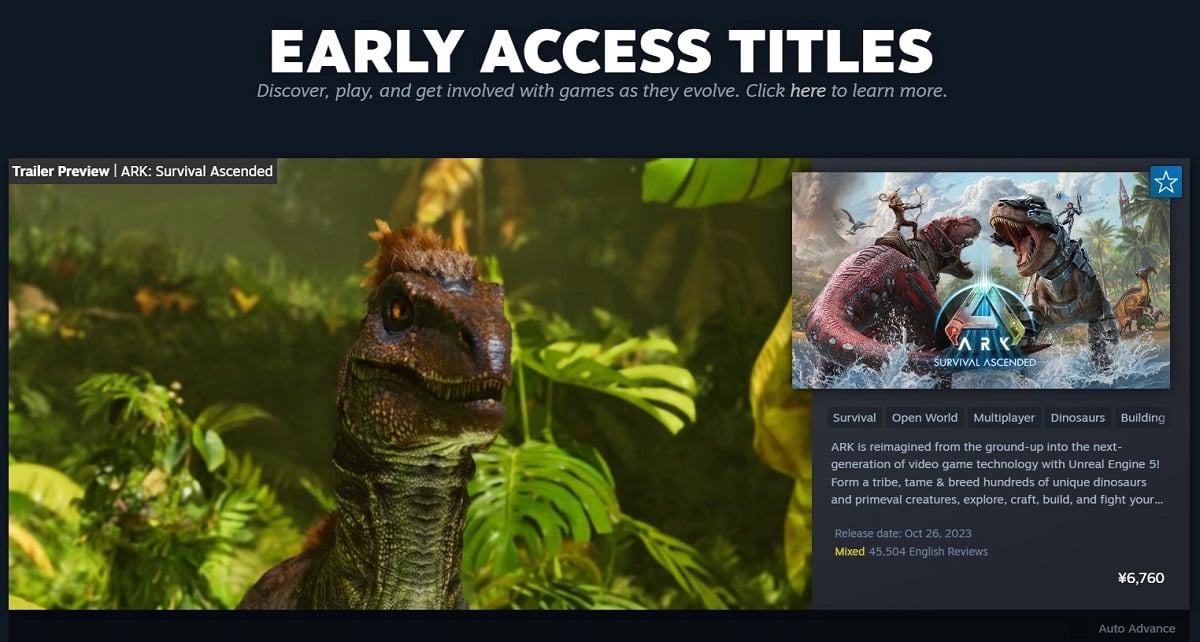Market research firm Newzoo published the free edition of its Global Games Market Report 2025 on September 9. Among its findings is an analysis of how early access length affects a game’s momentum after fully launching.
The data covers titles that launched in early access between January 2021 and December 2024 and also reached full release within that period. Drawing from 37 countries (excluding China and India), the report looks at the average number of new players during the first three months after full release.
Compared to the first three months of early access, data suggests that most games failed to surpass their initial momentum when they hit full release. However, games with an early access period of four to nine months showed stronger growth in new players at full release. Based on these findings, Newzoo concludes that roughly six months is the optimal early access period if you want to attract new players at launch. The report also notes that games able to release within this window are often those that already had a solid foundation at the start of their early access and made effective use of player feedback to make improvements.

There are, of course, exceptions. Titles like Stunlock Studio’s V Rising and Void Interactive’s Ready or Not, which stayed in early access for nearly two years, still attracted large numbers of new players at full release. Dave the Diver, which had an eight-month early access period, is also cited as an outlier. Even so, excluding such exceptions, Newzoo’s analysis suggests that around six months is generally ideal.
On a related note, in 2023, GameDiscoverCo’s Simon Carless analyzed over 1,500 games released between 2015 and 2023, comparing estimated unit sales in the first three months of early access versus the first three months post-launch. His results showed that the longer a game stayed in early access, the weaker its full-release sales tended to be. However, Carless also pointed out that longer early access periods provide more opportunities for turning existing Wishlists into purchases, meaning that extending early access isn’t necessarily a mistake, as long as you don’t mind slower post-launch sales.
It’s also worth mentioning that early access length is just one factor affecting a game’s performance – the frequency of updates, release date timing, and other aspects of marketing all play a big role. Nonetheless, it’s interesting to see that the statistical ideal is six months – a pretty short early access period.





